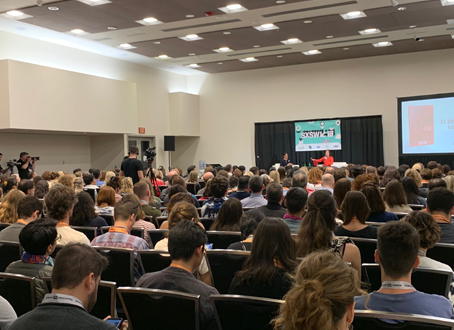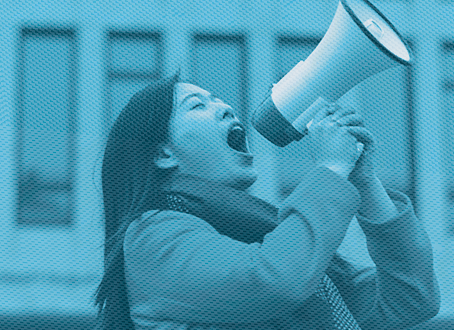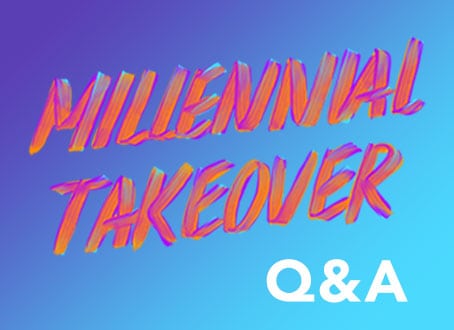In the early days of the Case Foundation, I had the fortunate experience of getting to know Alan Khazei and Michael Brown, the bright, young founders of City Year. Their passionate vision and drive to strengthen the culture of service to others in the United States was evident to anyone who crossed their paths. I recall Alan’s dream of an American future in which “where did you go to school?” was expanded or replaced with, “and where did you serve?” Alan, Michael, and other early leaders in the service sector understood that it was the selfless acts of so many Americans who put themselves in service to others that have played a vital role in keeping our nation strong.
At the Case Foundation we came to understand in a powerful way how building pathways to service wasn’t just “nice to do,” but indeed was a leveraged and strategic way to strengthen our nation and our communities. As a result, we’ve proudly supported leaders in service and remarkable organizations that thrive because of a culture of service. These include organizations like City Year, America’s Promise, Habitat for Humanity, A Billion + Change, Special Olympics, Give an Hour, Points of Light, and many, many more.
In 2007, I had the honor of being asked by President Bush to chair his Service and Civic Participation Council. I joined with celebrities, businesses, community leaders, and philanthropists to develop a strategy to recognize, reward, and inspire service in the U.S. I remember at the time being surprised by the statistics that showed less than one-third of Americans volunteered on a regular basis – a statistic that remains about the same today. I was equally surprised this past year to hear a statistic that showed less than one percent of Americans have served in the Iraq and Afghanistan wars in the past decade.
It was the union of these two facts that led General Stanley McChrystal to stand up at the Aspen Ideas Festival last summer and caution the attendees about the unintended consequences of a growing lack of shared sacrifice in this country. But like any great military leader, he then called for a plan of action to address the situation: the creation of a voluntary civilian counterpart to military service in the United States, with a goal of mobilizing millions of Americans in service to their country and communities.
A year later, that idea is beginning to take off as the Franklin Project – a proposal to ignite national service – launched yesterday in Aspen, CO. For the past year, leaders and practitioners from across sectors have joined with General McChrystal, John Bridgeland, Alan Khazei, Walter Isaacson, and many more proven innovators to craft the vision for a 21st century national service system that will offer at least one million full-time civilian national service opportunities for young adults ages 18 to 28 every year—on par with the more than one million Americans who serve on active duty in the Armed Forces.
The robust plan, which aims to create a new American rite of passage, includes dozens of strategies and policy proposals that suggest strengthening existing paths to service such as expanding AmeriCorps and Peace Corps; building new frameworks like a national certification system that allows any organization or municipality to create full time service opportunities; and creating stronger connections between civilian and military service by amending the current Selective Service System so that every American (men and women) age 18 or older registers and receives information about opportunities to serve in the military or in a civilian-national service capacity.
We know service is not just a nice thing do to. Research shows that service a key factor in building a better life — raising successful children, finding a new job after a period of unemployment, and playing a more active role as a citizen in one’s community. Our partners at Give An Hour, City Year, Global Health Corps, and A Billion + Change all demonstrate every day that volunteers can play a critical role in issues of great national importance like mental health care for veterans, the high school dropout crisis, global health disparities, or building the capacity of nonprofit organizations with skilled private sector volunteers (respectively). As Joel Klein puts it in his TIME story leading up to the launch of the Franklin Project:
Imagine the impact a robust national-service program — like the service corps proposed by the Aspen Institute’s Franklin Project — would have on our nation of couch dwellers. If service is therapeutic, imagine the impact, especially on boys, who are having more trouble than girls graduating from high school and college these days. If service can reconnect individuals to their communities, imagine the impact on our waning sense of civic engagement, our weirdly hollow democracy in which active citizenship has been displaced by marketing and political sloganeering. Would it be so bad if the rest of us became more attuned to the values and can-do spirit our veterans have brought home from the military?
The proposals coming out of the Franklin Project clearly show that if we are going to create greater shared sacrifice, provide opportunities for the millions of Americans that want to serve and don’t know where to start or harness service to tackle common challenges, then it will take all sectors working together to build more effective and leveraged programs and opportunities. I am delighted to see the Franklin Project resist the urge for just more of the same or overly rely on an overburdened, unreliable, federal budget.
America, and the world, is facing great disruption. Demand for social services is up and traditional sources of revenue for social service organizations are down as government and philanthropic budgets decrease and competition for dollars increase. The concept of building out national service is a big, bold idea — and one that represents some risk, especially at a time when government spending is under significant pressure. Our own focus and passion in this work will be to invest in smart, leveraged models that can help accelerate and scale service faster and more efficiently than ever before. At a time like this we must put all of our oars in the water; we need local, state, and federal government, small and big business, social enterprises and social services, and most of all we need every American with rolled up sleeves putting their unique talents to work. That’s why the Case Foundation is a proud supporter of the Franklin Project, and look forward to helping build a new civic superhighway bursting with clear on-ramps to meaningful service for all Americans.





